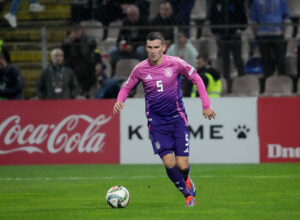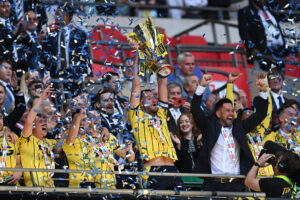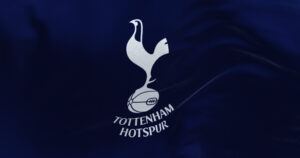Manchester City’s exit from the UEFA Champions League confirmed several things – English clubs are still some way behind other sides in Europe, Monaco’s thrilling youngsters can perform when the pressure is on, and that the race to the competition’s final is as open as it has been for years.
Why an Improved Defence Should be Pep Guardiola’s Priority
Though what stood out above all else was, in order to move forward as a side, the need for improvement in City’s defence is vast. After working so hard in the first leg to travel to Monaco with a two-goal lead, Pep Guardiola’s side found their advantage wiped out within half an hour.
Monaco full-back Benjamin Mendy caused havoc down the left flank, with both of the first two goals coming from him exposing Bacary Sagna, who was often left with two-on-one situations not in his favour. Leroy Sane pulled a goal back but just when City didn’t need another lapse at the back, with the tie in the balance, poor marking allowed Tiemoue Bakayoko to head home the decisive goal.
“Normally we play to a good level but here we didn’t,” conceded a downbeat Guardiola at full-time. “We will learn. The team does not have a lot of experience. The second half we had the chances and we didn’t take them and that is why we are out. And set-pieces are so important at this level. Barcelona and Real Madrid scored from them last week. We were not there and we were not there in the first 45 minutes.
“We will improve but this competition is so demanding. Sometimes we have to be special and be lucky. We were not.”
For how special City might be in attack, frequent defensive mistakes are proving costly for them both domestically and in Europe. Only Legia Warsaw have conceded more goals in this year’s Champions League and of the eight quarter-finalists, City faced the second-least amount of shots on target.
Guardiola is a man who has historically been and still remains immensely proud of his squad’s solidarity at the back. In his Barcelona days, his team always boasted the best defensive record and at Bayern Munich his record improved further. The Bavarians conceded just 58 goals across three seasons under Guardiola, as his players gradually bought into his ideas.
“It’s very satisfying to stop your opponent’s counter-attacks,” explained Guardiola in Marti Perarnau’s book ‘El Confidencial’, which followed and analysed his first season in Munich. “The first concept to make clear is that when you attack properly in this way, you ensure you are protected without the ball, however that happens.
“To generate space, you have to drop back because if you have the opponent corralled in their own penalty area, there will be no space at all and it’s much tougher to create dangerous football.”
Guardiola’s defensive philosophy continues to fascinate, though consistent performances are not being translated out on the pitch with this Manchester City side. And while it seemed as though things were taking a turn for the better since the disastrous 4-0 defeat at Everton – a run that included 11 games unbeaten and six consecutive clean sheets away from home since their latest defeat – the problems came back just when Guardiola didn’t need them to.
Perhaps it is the personnel that is the problem. Nicolas Otamendi has proven less than reliable after a strong start to the season and John Stones, while still young and worth persevering with, is not showing enough of the talent, defensively and on the ball, that persuaded City to cough up £50 million for his services.
Guardiola has also consistently tinkered with other members of his defence. The move of Aleksandar Kolarov to centre-back remains a puzzling one and while one could applaud Guardiola for being receptive in trying to find solutions to his defensive philosophy, rarely has a team been successful without their manager knowing the partnership that works.
And that is where Guardiola has serious work to do in the summer. The money is there and it remains vital to add the right players that not only fit into Guardiola’s way of thinking (bringing the ball out from the back), but also ones that see off periods of pressure when required.
A change in central defence will be key, but also an overhaul of the full-back position should prove just as important. All four of Bacary Sagna, Pablo Zabaleta, Gael Clichy and Kolarov are now well past 30-years-old and as a result, City look slow in a position that has become far more important over the years.
City have been linked with Arsenal’s Hector Bellerin, Benjamin Mendy of Monaco and Napoli’s Faouzi Ghoulam, all players who would add some much-needed energy and pace in wider areas. It is an aspect that sides are using to their advantage even more, especially in Europe, as Monaco brutally showed on Wednesday night.
“The problem is not down to Guardiola’s system or the way he sets his team up,” said Phil Neville in a BBC column in January. “It comes down to the mentality of his players, and them being alert and aware of danger – I am talking about things like their reaction time, staying in line with the rest of their back-four and staying with runners from the opposition team.”
It would, therefore, seem wise to continue to trust Guardiola and his ideas, not only due to his track record but also because of the praise of the system received from players over the years. Though the latest setback was a harsh reminder of the amount of work still left to improve this City defence.
“This is the most difficult job I have ever faced,” Guardiola said upon his arrival at Manchester City. The statement would seem no hyperbole, and if City are to challenge in Europe as well as regain their Premier League crown, major changes may well be on the horizon.
Main Photo:






